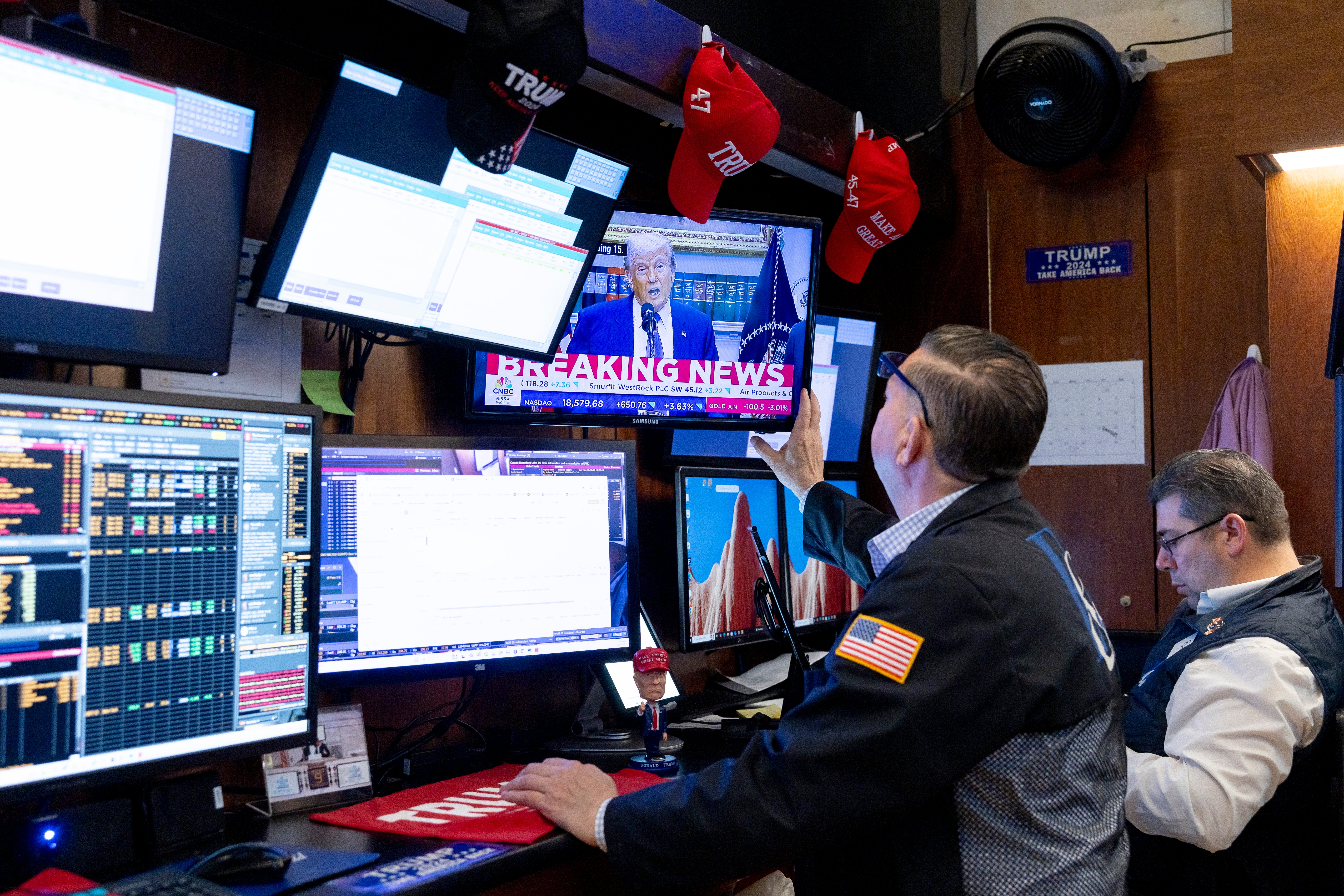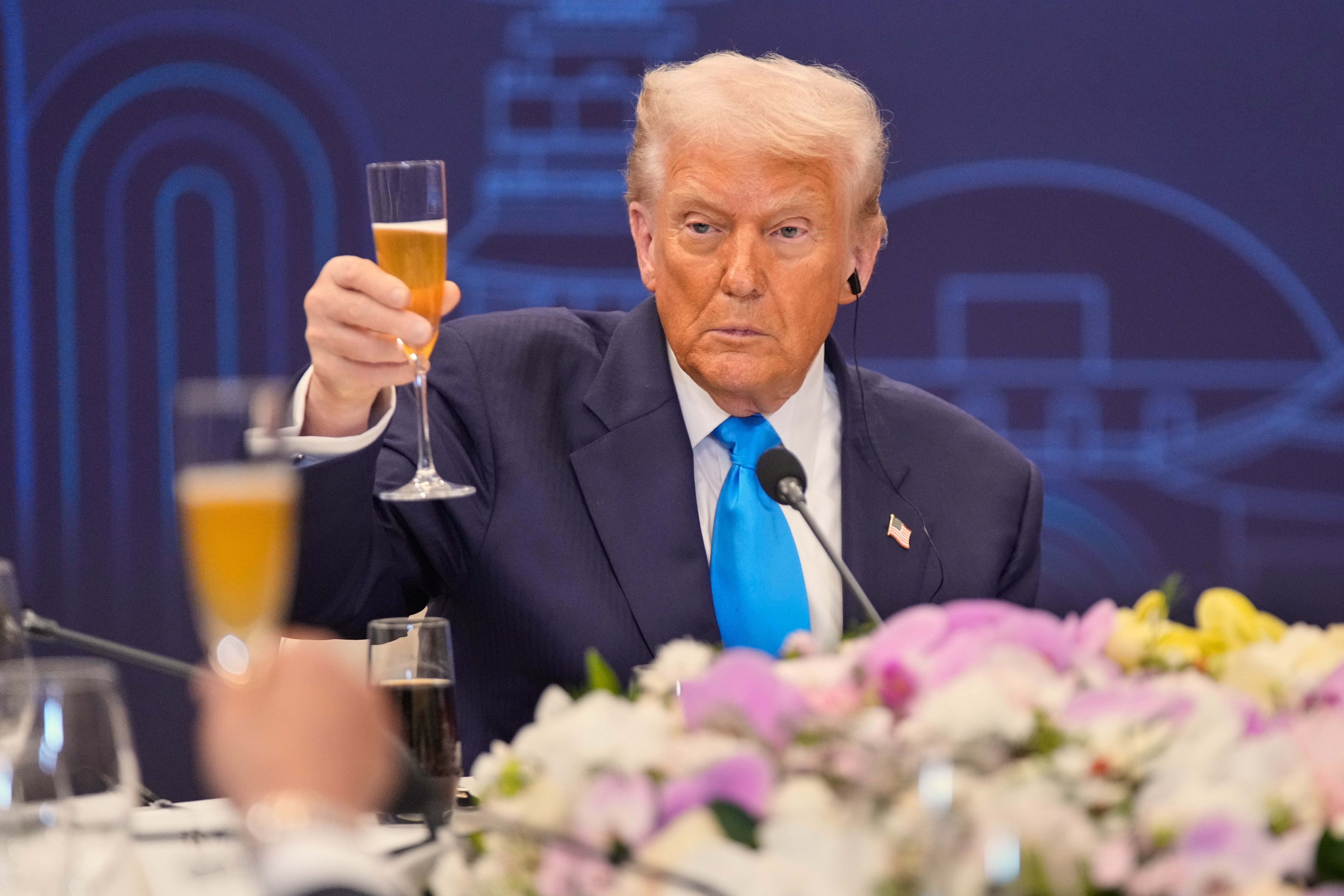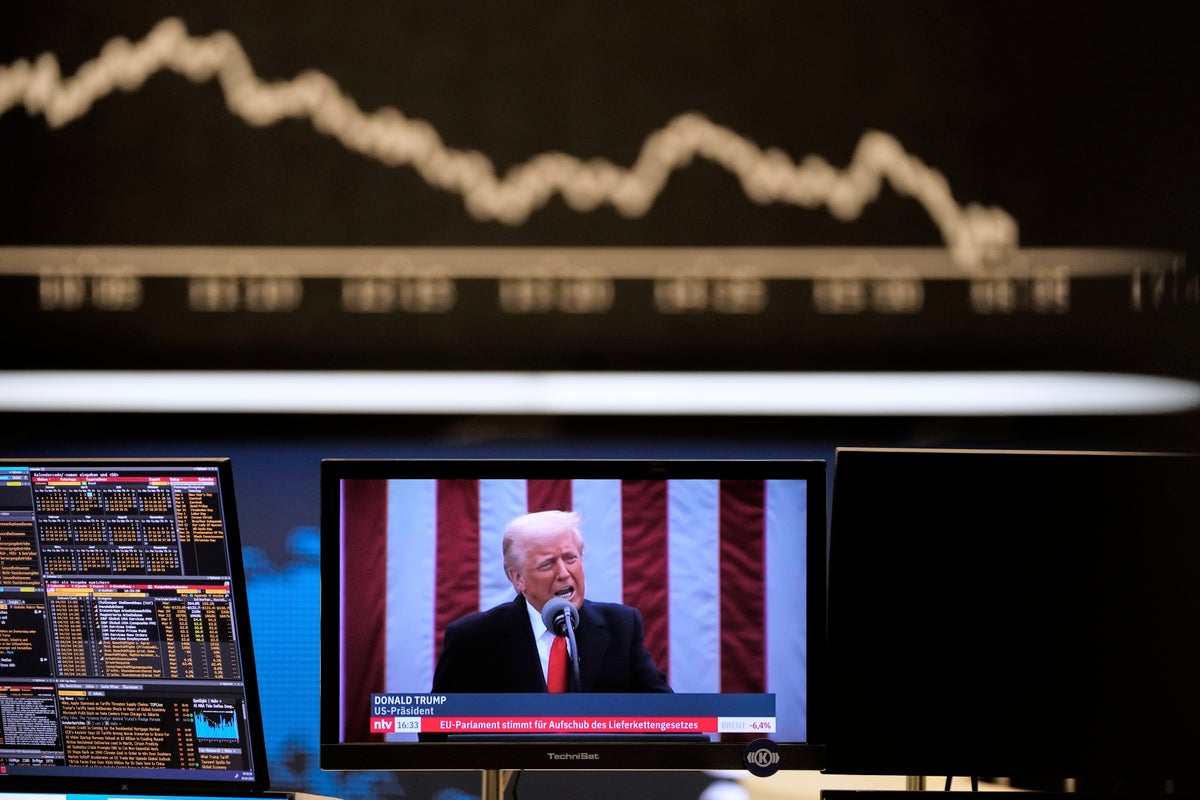Donald Trump raised eyebrows at a recent dinner with top U.S. business leaders after asking for advice on affordability issues and giving an ambitious prediction about the growth of the economy.
The president made the remarks during a private event at the White House on Wednesday, which included CEOs from the likes of JPMorgan Chase, BlackRock, Goldman Sachs and Nasdaq.
“He spoke a lot about affordability and what we can do from a market perspective to address it,” one of the attendees told The New York Post.
While the president did not refer to the current state of the economy as an affordability “crisis,” as many Democrats have alleged, he did appear to acknowledge some issues with prices and asked the CEOs if they had any solutions.
Trump then also boasted that his economic policies, including sweeping tariffs, could make the U.S. economy grow “between five and six percent,” higher than even the most optimistic of estimates from other sources.

A report by Goldman last month forecast U.S. potential GDP growth at an average of about 2.1 percent in 2025-2029, before accelerating in the early part of the next decade in part due to the impact of AI.
“I sure hope the president is right about 6 percent growth,” another CEO who was present at Wednesday’s dinner told The Post. “But I don’t see how we get there. His people are worried as well particularly about affordability but they won’t tell him. He’s surrounded by a lot of ‘yes men.’”
Trump “has been focused on reversing the economic crisis he inherited from Joe Biden since day one,” a White House official told The Independent.
“The president is always working with business leaders to implement his aggressive, pro-growth agenda to decrease prices, increase wages, drive job growth, and fuel the economy. This dinner was no exception to his constant partnership with leaders in the private sector.”

The spokesperson added that the president made time to speak with many of his guests at the dinner one-on-one.
It comes after experts also predicted that the recently ended federal government shutdown, the longest in U.S. history, would also leave a mark on the already struggling economy.
“Short-lived shutdowns are usually invisible in the data, but this one will leave a lasting mark,” Gregory Daco, chief economist at accounting giant EY said, “both because of its record length and the growing disruptions to welfare programs and travel.”
The Congressional Budget Office estimated that a six-week shutdown would reduce growth in this year’s fourth quarter by about 1.5 percentage points, cutting growth by half from the third quarter.
The government reopening should boost first-quarter growth next year by 2.2 percentage points, the CBO projected, but about $11 billion in economic activity will be permanently lost.




